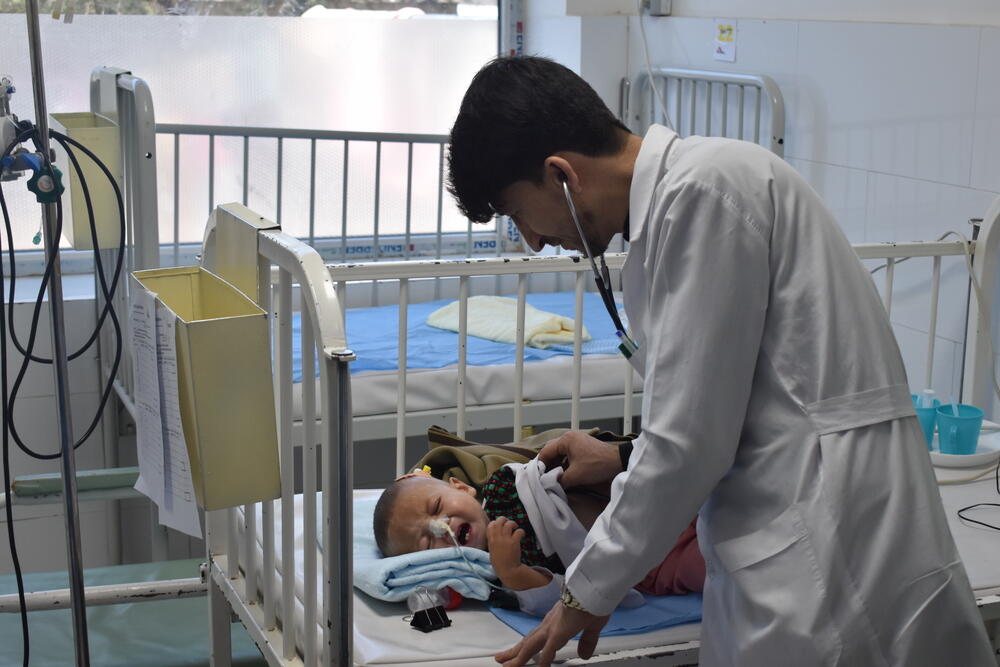Afghanistan: "It feels like we are their last option"
After months of fighting on the outskirts of Herat in Afghanistan, the Islamic Emirate of Afghanistan (IEA), also known as the Taliban, took control of the city on 12 August.
An Afghan Médecins Sans Frontières / Doctors Without Borders (MSF) medic working in the city describes how we kept services running after the end of the fighting and the new challenges that they and other health services in the area are facing today.
“When the fighting approached Herat there was quite a lot of fear, people were worried. So was I, not knowing what would happen in the future.
When the real fighting started inside the city many people were scared so stayed at home, but the situation changed dramatically in about three hours and the IEA took full control of the city.
During the fighting a lot of injured people were brought to Herat Regional Hospital. When people heard about casualties or bombs they would get on their bicycles and go to the hospital and say they wanted to donate blood.
"Before the fighting, we had 95 malnourished children undergoing treatment in the centre. We only had 42 beds."
So many people donated that the hospital announced that they had enough supplies and would call people if they needed more. I find it inspiring that during the fighting there were people running towards the hospital to help.
Malnutrition admissions on the rise
The morning after the IEA took control I went to our feeding centre to help support the staff.
Before the fighting, we had 95 malnourished children undergoing treatment in the centre. We only had 42 beds, and although we added another 18 by putting up tents to act as temporary wards, we were still well overcapacity.
During the fighting the number decreased to around 60 but the numbers are increasing again. We currently have around 80 patients, and the numbers are increasing day by day.
There was one malnourished child in our centre who was from an extremely poor family.
We treated the child and provided food for the mother while the father stayed outside.
We asked them how they could get to the hospital as the father told us that before he didn’t even have 10 Afghanis (US$0.10).
They sold their sheep and cows and used that money to get to the hospital. Others have to borrow money from their relatives. People are very happy when we’re able to cure their children.
We also run a clinic near camps where many displaced people have settled, including from other provinces like Badghis and Farah.
Lack of funding
The first Sunday after the takeover a lot of patients came to our clinic as a lot of other organisations suspended their operations, either for security reasons or because they’re not able to pay salaries.
"Right now, MSF is the only international organisation working in Herat... it feels like when people come to us we are their last option."
MSF has found a way to pay all its staff and that has made people calm and more full of hope.
It’s an uncertain time so people are working very hard. People are tired but we hope it will calm down. People have hope but still have little idea about what the future will bring.
Now the main worry is that the other health facilities, for example, those that receive funding from the World Bank, won’t be able to carry on their work in Herat as the World Bank has stopped its funding.
There’s no clear picture of what will happen. Some staff working for other organisations haven’t received salaries for months, this has happened before but then people had hope that they would be paid eventually.
Now with so much uncertainty, people tell me they have no hope, many are looking for another job.
Challenges ahead
Treating patients is our responsibility, that’s how I think about it.
Right now, MSF is the only international organisation working in Herat as the others stopped their activities.
Before we could refer people to other health providers but now it feels like when people come to us we are their last option.
Compared to the time before, there is more responsibility, more challenges. There is a lot of work on our shoulders.”
